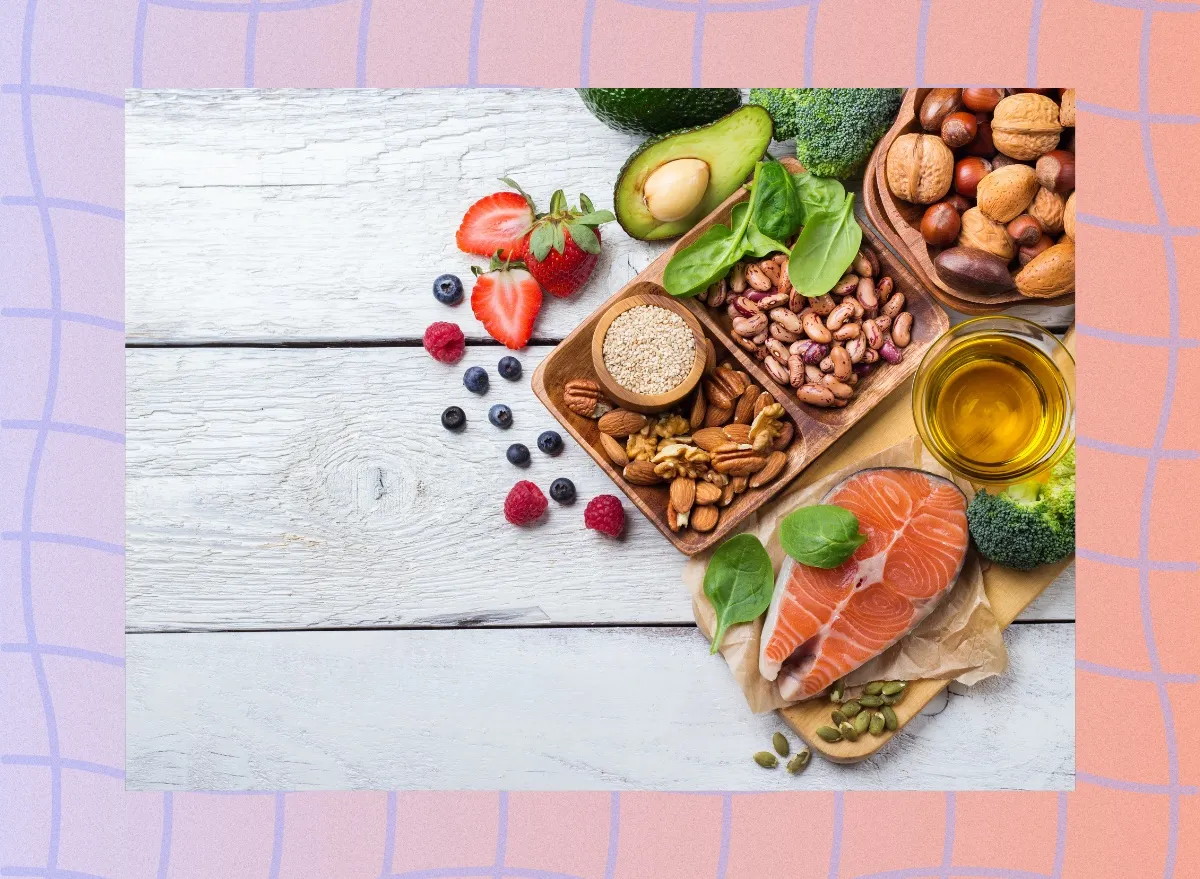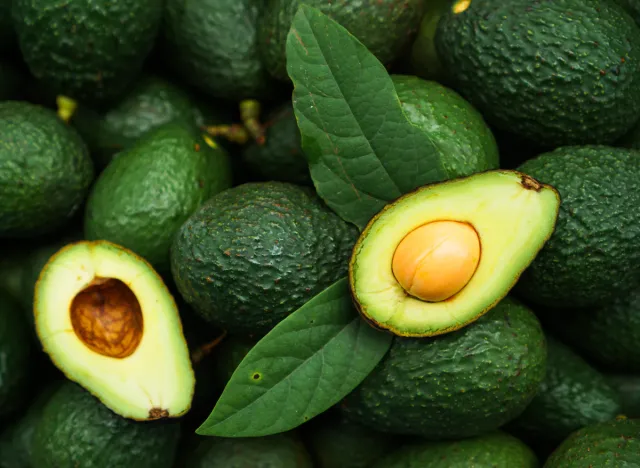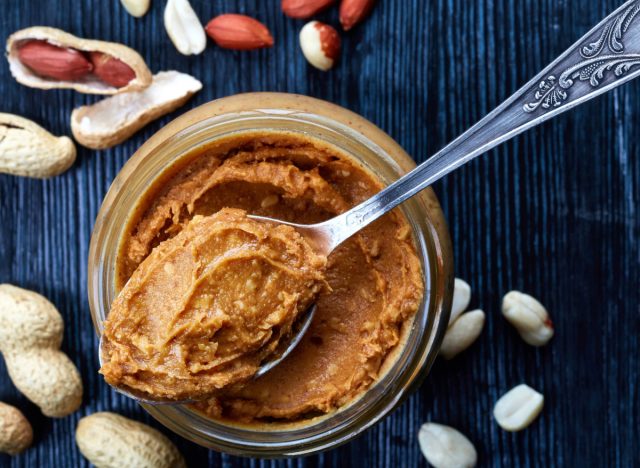Here’s How Much Fat You Should Eat Every Day for Weight Loss

Okay, so you’re on a weight-loss journey. The last thing on your mind is consuming fat, are we right? Well, you may be surprised to hear that not all fat is created equal, and it’s actually essential to include some of it in your diet! That’s why we’re breaking down how much fat you should eat every day for weight loss to ensure you stay on a healthy track and reach your goal.
It may sound counterproductive, but the right amount of fat can support your weight-loss progress. According to research, a moderate-fat diet that includes getting 20% to 30% of energy from fat sources can help you lose weight because you’re more likely to stick with a diet that’s not overly restrictive in fat content.
Read on to learn how much fat you should consume daily when you’re trying to lose weight and a dietitian’s top picks for fats to include.
How much fat should you eat each day for weight loss?

Fats typically get a bad rap for their high-calorie content, but they’re a key player when it comes to maintaining a nutritious diet, explains Melissa Galich, RD, CD, from Top Nutrition Coaching.
“The Food and Nutrition Board of the Institute of Medicine recommends 20% to 35% of daily caloric intake come from fats,” Galich says. “When trying to lose weight, I lean toward 20% to 30% of calories to come from heart-healthy fats. The main fats to avoid in your diet are saturated and trans fats.”
According to the American Heart Association, you should aim to consume 5% to 6% of your calories from saturated fat and stay away from trans fat altogether.
“Saturated fat primarily comes from high-fat animal sources such as meats (hot dogs, ribs, sausage, etc) and dairy (high-fat cheese, milk, butter). The main plant sources of saturated fat are palm and coconut oils,” explains Galich. “[By] choosing at least 90% lean beef, skinless poultry, fish, seafood, low fat/fat-free dairy and limiting or avoiding butter, you can greatly decrease your saturated fat intake.”
On the other hand, trans fat is not a “natural fat,” and you’ll find it in hydrogenated or partially hydrogenated oils and processed foods. Being a mindful label reader is essential to avoid trans fat.
“More manufacturers are finding substitutes for hydrogenated oils; however, they can still be in some foods such as stick margarine, snack cakes, crackers, baking chips, etc.,” Galich adds. “Checking the ingredient list in packaged foods is the easiest way to avoid trans fat. If you see hydrogenated or partially hydrogenated oils in the ingredient list, try looking at another brand or avoiding that food altogether.”
What are healthy foods that contain fats?

Both mono- and polyunsaturated fats are healthy fats and are considered beneficial for overall health. “They can increase good cholesterol (HDL) and lower bad cholesterol (LDL), support cell and brain health, and have anti-inflammatory properties,” Galich says.
That being said, too much of anything is never a good thing, so it’s key to be mindful of the amount of fat you’re consuming. “Excess fats, even healthy fats, can increase calorie intake, which can lead to weight gain and increase total cholesterol levels,” notes Galich.
Solid foods that offer healthy fats include seeds, chia seeds, nut butter, flax, avocado, vegetable oils like canola or olive, and high-fat fish such as salmon, tuna, and mackerel.
Why is it important to incorporate fat into your diet for weight loss?

Your body won’t absorb essential vitamins such as vitamins A, D, E, and K if you don’t have fat in your diet, says Galich.
“Vitamin A supports healthy vision, immune and inflammatory systems, and promotes cell growth,” she explains. “Vitamin D is important for bone health [and] blood sugar control. [It] reduces inflammation, promotes cell growth, and supports immune and neuromuscular function. Vitamin E can help decrease inflammation, protect against heart disease, and fight free radicals, which can increase your risk for cancer and other chronic diseases. Vitamin K aids in blood clotting and bone health.”
All in all, leading a lifestyle of balanced eating habits is essential. No food is off limits; opting for healthy foods the majority of the time while still indulging in some less healthy favorites every now and then can lead to sustainable weight loss and management.
- Source: Weight-Loss and Maintenance Strategies
- Source: Nutrition & Health Info Sheets for Health Professionals - Fat
- Source: Saturated Fat
- Source: Dietary fat increases high density lipoprotein (HDL) levels both by increasing the transport rates and decreasing the fractional catabolic rates of HDL cholesterol ester and apolipoprotein (Apo) A-I. Presentation of a new animal model and mechanistic studies in human Apo A-I transgenic and control mice.
- Source: Brain foods: the effects of nutrients on brain function
- Source: The Science of Fatty Acids and Inflammation1,2,3
- Source: Vitamin A and Carotenoids
- Source: Vitamin D and Bone Health; Potential Mechanisms
- Source: The Anti-Inflammatory Role of Vitamin E in Prevention of Osteoporosis









